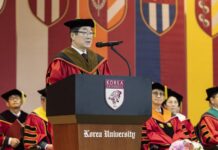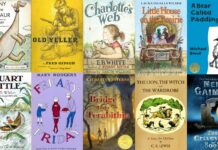Music is a completely effective subject – It has been used since Greek times for healing, conversation, relaxation, and amusement. Even before we start, we’re aware of our mom’s heartbeat and, at some stage in infancy, are comfortable using the song of a lullaby. Every day, anyone hears a few musical pitch or rhythm shapes, which could also be determined by nature and how birds talk via a tune-like speech.

Music is this kind of effective force; it creates deep feelings in people – it is performed at weddings for happiness, in horror movies, and all through conflict for worry, and at home for pleasure, and due to this, it lends itself to rest pressure alleviation, and health therapy – and the relationship between track, body, and soul has even been proven to enhance bodily and mental health.
Skills include teamwork, communication, shallowness, creative questioning, calmer attitudes, creativeness, field, and examination abilities. The invention is learned and advanced via the examination of track and via focusing on the truth that younger children are primarily noticeably receptive to pitch and rhythm – one of the main methods a toddler learns its language – that we can pressure education in music to kids to help them with benefits ranging success in society and existence.
“We believe the abilties the humanities educate -innovative questioning, problem-fixing, hazard-taking, teamwork, and communications – are precisely the gear the body of workers of tomorrow will need. Suppose we don’t encourage college students to grasp these skills through first-class arts instruction. How can we anticipate them reaching their especially aggressive business careers tomorrow?”
Music is a part of our society and all groups – each human culture uses the track to carry its ideas and beliefs ahead. Studying the humanities provides youngsters with an inner glimpse of other cultures and teaches them to be empathetic and closer to the humans of these cultures. Instead of growing greed and a selfish mindset, this improvement of compassion and empathy presents bridges throughout different cultures that lead to the respect of other races at an early age.
Music has a first-rate fee to our financial system – it creates jobs, grows the tax base, boosts tourism, and spurs increases in associated businesses. Music develops essential skills inside the administrative center, teamwork talents, and field. In musical performances, all contributors need to work together to create the sounds they want to acquire. For this, ordinary practice is also required. Music favors operating and ‘doing’ instead of observing, and these are the ethics employers are looking for.

Because of the track’s ability to relax, calm, and heal, and its most useful platform for emotions, the involvement with song helps to carve brighter attitudes – greater optimism towards destiny, less TV and ineffective sports, low use of alcohol, tobacco, and illicit capsules and choice to develop personal talents. Music requires study competencies, conversation competencies, and cognitive skills. As those are learned and advanced, they develop students ‘ competencies in different instructional regions and help them emerge as higher students. –
Students with coursework/revel in music performance and tune appreciation scored higher on the SAT: college students in tune performance scored 57 points better at the verbal and forty-one factors better at math. College students in song appreciation scored 63 points higher on oral and 44 factors higher in math than college students without arts participation. — College-Bound Seniors National Report: Profile of SAT Program Test Takers. Princeton, NJ: The College
The field of tune, mainly via participation in ensembles, allows college students to discover ways to paintings effectively inside the college environment without resorting to violent or beside-the-point behavior – According to facts compiled by using the National Data Resource Center, college students who can be classified as “disruptive” (based totally on elements consisting of common skipping of instructions, instances in hassle, in-faculty suspensions, disciplinary reasons given, arrests, and drop-outs) general 12.14 percent of the overall college populace. In contrast, the most effective 8.08 percent of students involved in music instructions meet the equal criteria as “disruptive.” Based on the NELS:88 (National Education Longitudinal Study) data, 2d comply with-up, 1992.
Much research has been carried out on tuning inside the brain. Scientists say that kids exposed to music or play an instrument do better in college than those who aren’t. Recent research shows that music may also improve a baby’s reading age, IQ, and the development of positive parts of the mind.
It may be shown that a few measures of a baby’s intelligence are multiplied with track practice – a connection between song and spatial intelligence (the capacity to understand the sector as it should be and to shape intellectual photos of things) enables humans to visualize and consider answers. This allows human beings to solve troubles creatively and is essential to thinking for fixing mathematical issues or even trendy each day’s duties.
“The musician is continuously adjusting choices on tempo, tone, fashion, rhythm, phraseology, and feeling–schooling the brain to turn out to be rather exact at organizing and conducting severa activities right now. Dedicated exercise of this orchestration could have a high-quality payoff for lifelong attention competencies, intelligence, and the ability for self-information and expression.” — Ratey John J., MD. A User’s Guide to the Brain. New York: Pantheon Books, 2001.
Along with intellectual improvement, tune study can support the brain’s physical improvement – it has been indicated that musical training develops the parts of the brain known to be involved with processing language and reasoning and may cord the mind’s circuits in unique methods. The memory may be improved by linking acquainted songs with items simply as attaching snapshots can – past reminiscences and feelings may be triggered by audio.




